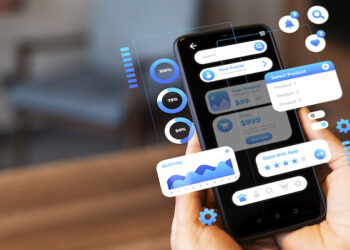A typical Fortune 500 company used to take about 20 years to reach a $1Billion market capitalisation. The same thing took Google less than nine years. It took Uber and Whatsapp less than three, and Snapchat less than two.
Common sense holds that in order to keep up with this ever changing world, employees need to keep pace with the change. But I believe that if we want to weather the ever-changing tide, we first need to learn to swim in the deep.
The days of working for one company for your entire life are long gone. It has become generally accepted that the new generation of employees does not stick around in one job, or even in one company, for more than three years.
In fact, the global Deloitte Millennial Survey 2016 revealed that two thirds of millennials plan to leave their current jobs by 2020; 44% claimed that, if they had the choice, they would leave within the next two years.
This seemingly-irresistible urge to keep moving seems to be in keeping with the fast-changing world in which this generation has been brought up; to the point that sticking in one position for “too long” could be seen as a sign of a lack of ambition, or talent, or both.
The problem with constant change, however, is that while employees gain breadth of experience – from working across different clients, or perhaps even in different industries – what they never really gain is depth of experience. There is much splashing around in the shallows, and much moving with the tide; but no real swimming in the deep, so to speak.
In my experience, depth of experience is gained only over time, and quite often through adversity. That’s why it’s called the deep end – when our feet can’t touch the ground, when we are unsure of our footing, that’s when we truly learn.
Learning how to swim in the deep takes time, and patience, and resilience. It also requires courage – not only to stick it out, but also to say ‘no’ to the temptation to move to the shallows of another shore. These are timeless skills, which can only be learnt and acquired through experience.
In addition, learning to swim in the deep enables us to uncover real, timeless principles of business – those that, despite the rapid change around us, will remain steadfast.
Unfortunately, because we have become so accustomed to employees moving with the tide, we seldom expect them to swim in the depths anymore. And because they never learn to swim in the deep, they spend their lives splashing in the shallows, learning many things, but not acquiring any real skills.
It’s a vicious cycle.
People say that we all need to “change with the times” (or the tides), but perhaps we need to relook at the way in which we interpret the word ‘change’. All too often, the change we seek is external. But perhaps the change we ought to seek is internal.
These days, it’s easy to splash in the shallows, to move with the tide. But in a world in which the future is unknown, isn’t it better to know that you can swim in the deep?
Andrew Versfeld is a Senior Strategic Planner at Publicis Machine.














